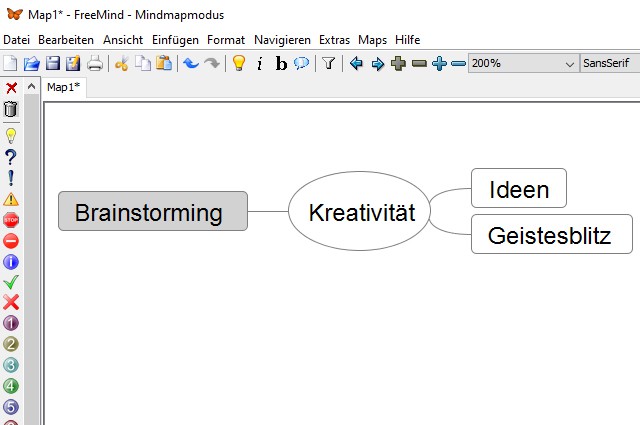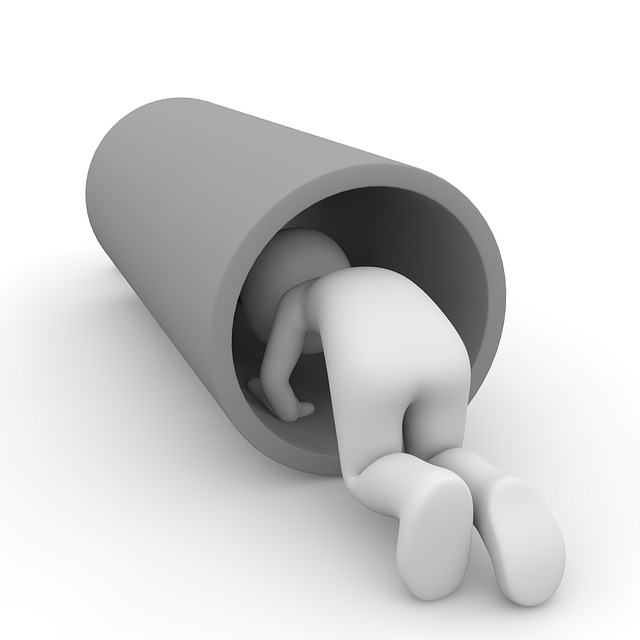Fearing the Blank Page: Ignite Your Creativity
Everyone working as a designer or author or in any other creative job knows it: the fear of the blank page or the blank screen – the creative block. There are moments where simply nothing comes to mind when trying to come up with a convincing logo or a captivating text. If creativity is your job, you can’t afford to have a lot of these moments. Luckily, there are plenty of ways to help ignite your creativity.
Move to Spark Your Creativity: Escape the Everyday Routine
It’s a good idea to take a step back from the daily routine when trying to come up with an idea. The least ideas are created sitting at your desk. A stroll, sports or simply walking your dog can get your creative juices to flow.

Even though the beginning of an idea isn’t more than a blank page sometimes, creativity never comes out of the blue. Most of the time, associations and thoughts are what make us create something new. This works better when leaving behind all the things you are used to and know well for a short period. A stroll is not always enough, however. That’s why there is a multitude of different “creativity techniques” that you can use alone or in groups to find new ideas and, of course, scrap them if needed.
Brainstorming and Brainwriting
Brainstorming is one of the most well-known techniques where you collect random ideas on a topic in small groups. The task is to gather and pick up as many keywords as possible on the subject. It’s important that none of the brought-up ideas are criticised or denied instantly. After the brainstorming, it’s time to sort the idea collection.

Brainwriting is very similar to brainstorming. The difference is, that everyone collects ideas for himself first, before discussing them in a group. Brainwriting also works well when you are on your own. By writing them down, you make sure that no ideas get lost, and it also helps to go from one idea to a new one that might be just the one you were looking for.
Mindmapping
Mindmapping is much more organised than brainstorming or -writing. While you also search for keywords on a certain topic, you connect them in contrast to brainstorming. This allows for the creation of branched diagrams where you can follow potentially promising directions while ignoring the creative dead ends.

Besides classic mind mapping using a flipchart or a pinboard, there is a free software called FreeMind, which you can use to create mind maps quickly. It allows you to connect keywords and create large mind maps with little effort. While you can run out of space on a flipchart or pinboard, this problem doesn’t occur in mind mapping applications.
More Creativity by Role Playing
Another way of gaining new ideas and thoughts is to switch roles or points of view. When you are a very rational person, for example, try to think from the position of a very emotional person.

Of course, changing your attitude or stance needs practice. But it allows you to discover new perspectives on problems and challenges and helps find different solutions.
Avoiding Negativity is Key to More Creativity

The techniques we presented are just a rough overview of ways to increase creativity. Based on these and other essential techniques, there are plenty other approaches that are much more precise in preparation and operation.
But no matter what method you decide to go for: Your general mood has to be positive. Especially when working on a team, criticism and possible risks need to be brought up carefully. Only when you are open to new ideas that are off the path of existing conventions, you will be able to find great ideas.
(dpe)
- Increase Your Productivity: How to Write Faster
 Links of the Week 05/2015: Japanese in Chocolate, 5 Tips for Best…
Links of the Week 05/2015: Japanese in Chocolate, 5 Tips for Best… Instant Inspiration: Niice.co, a Brand-new Search Engine for Designers
Instant Inspiration: Niice.co, a Brand-new Search Engine for Designers Break Free From SEO: Integrating the News_Keywords Meta Tag into…
Break Free From SEO: Integrating the News_Keywords Meta Tag into… Tips for Designing Small Websites Faster and Cheaper without…
Tips for Designing Small Websites Faster and Cheaper without… Information Overload: A Great Infographic Is Worth a Thousand Words
Information Overload: A Great Infographic Is Worth a Thousand Words